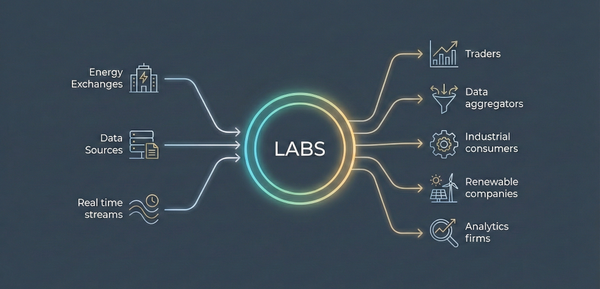The fusion of technology and environmental sustainability heralds a transformative era where industries traditionally seen as pollutants pivot towards greener practices. Green Technology explores how innovations, driven by visionary leaders and startups, are tackling climate challenges, emphasizing the critical role of data and tech in crafting a sustainable future. As investments in climate tech show resilience, the shift towards energy-efficient solutions and the strategic significance of ESG in global finance underscore the interconnectedness of tech advancements, economic dynamics, and policy frameworks in navigating the path to ecological harmony.
Table of Contents
Tech's Green Horizon
- Data augmentation to Tackle Climate Challanges
- A Look at Technology and Industry's Role in Mitigating Climate Change
Economic and Investment Dynamics
- Climate Tech in 2024
- Green Finance's Navigational Compass
- Energizing the Future: The Triad of Power, Prosperity, and Planet
- The Green Tinge of Global Finance
- Navigating the Tides of Change in Sustainability
Policy and Governance
Tech's Green Horizon
Data augmentation to Tackle Climate Challanges
The synergy between cutting-edge and eco-conscious strategies marks a new era of industry involvement in the fight against climate change.
Traditionally high-polluting industries are now shifting towards sustainable practices and becoming drivers of sustainable innovation, just like the broader tech community's push towards environmental responsibility, incl. insights from thought leaders, like Bill Gates, or climate-tech startups developing ground-breaking solutions.
Yet, alongside these great progresses, there are many challenges ahead, like having reliable data, which is crucial to climate science. However, we see that businesses often hit a roadblock due to limited data.
A Look at Technology and Industry's Role in Mitigating Climate Change
At the heart of climate action lies a critical blend of technological advances and industrial innovation, aiming to transform sectors traditionally viewed as environmental burdens. From exploring Bill Gates's tech-centric optimism to the evolution of industries like cement and plastic towards sustainable practices, this exploration reveals a dynamic landscape of possibilities. It underscores the importance of marrying human ingenuity with nature's principles, fostering a future where technology and ecology coexist in harmony, driving towards a regenerative and balanced world.
Economic and Investment Dynamic
Climate Tech in 2024
The shifting landscape of climate technology investments in 2023 and anticipates trends for 2024. Despite a challenging macroeconomic environment, climate tech, particularly software and hybrid solutions, managed to attract significant investment, suggesting resilience and potential growth in this sector. The focus on energy efficiency and innovative software solutions is notable, highlighting a strategic move away from more traditional, physical hardware-intensive approaches.
Green Finance's Navigational Compass
The complex relationship between finance, investment, and climate initiatives, highlighting the critical role of capital allocation and policy in driving sustainable growth. It emphasizes the challenges faced by the corporate sector in aligning with long-term sustainability goals amidst the slow pace of policy evolution and regulatory complexities. Despite these hurdles, there's a growing momentum towards ESG integration and responsible investment practices globally, driven by clearer regulations and increased transparency. The narrative underscores the collective effort needed from corporations, non-profits, and policymakers to navigate the complexities of green finance and steer investments toward a more sustainable future.
Energizing the Future: The Triad of Power, Prosperity, and Planet
The complex interplay of energy, money, and geopolitics, highlighting how these factors shape global dynamics and influence the balance between power and sustainable growth. It underscores the strategic importance of controlling energy sources and the role of financial investments in driving the transition towards eco-friendly and climate-focused initiatives, particularly within Europe's circular economy. The narrative emphasizes the need for innovative approaches and policy adjustments to navigate the geopolitical landscape effectively, ensuring that the pursuit of economic strength and resource control aligns with environmental sustainability goals.
The Green Tinge of Global Finance
The increasing importance of ESG in the financial sector mirrors a widespread agreement on the necessity of sustainable business practices, not solely for ethical reasons but also for economic viability.
What was once considered a niche interest has gained substantial traction due to the understanding that sustainability is linked with long-term profitability and risk management. This realization has brought ESG to the center stage, making it a key component in global finance and investment strategies.
Navigating the Tides of Change in Sustainability
By examining the multifaceted relationships through the lens of Scope 3, we uncover the deep interconnections between consumer behaviors, industrial activities, and their collective environmental footprints.
Energy dynamics, emissions tracking, and compliance mechanisms emerge as guiding forces toward sustainability.
Policy and Governance
The Local Versus Global Climate Debate
In an audacious move, Hungary spotlights battery technology and Chinese investments, diverging from the global climate agenda. This strategy not only sets Hungary apart in Europe but also incites discussions on adapting global environmental strategies to fit local contexts. This narrative underscores the potential of localized initiatives in shaping a diversified approach to the global climate challenge, suggesting that innovation and tailored strategies could lead to more effective environmental solutions.
Green Diplomacy and the Climate Challenge
The evolution of international climate agreements from the Kyoto Protocol to the Paris Agreement signifies a pivotal shift in global climate policy, emphasizing collective action against the climate crisis. The critical influence of non-profits in steering these policies, alongside the impact of regulatory frameworks like the CSRD, demonstrates a growing synergy between global cooperation, advocacy, and corporate accountability. As these elements converge, they create a dynamic blueprint for addressing environmental challenges, setting a course towards a sustainable future. Explore the evolution of policy frameworks and international climate agreements for a deeper understanding.
Are you interested in working with us? Contact us today, and let us hear your project goals. We’re excited to start an amazing journey with you!




